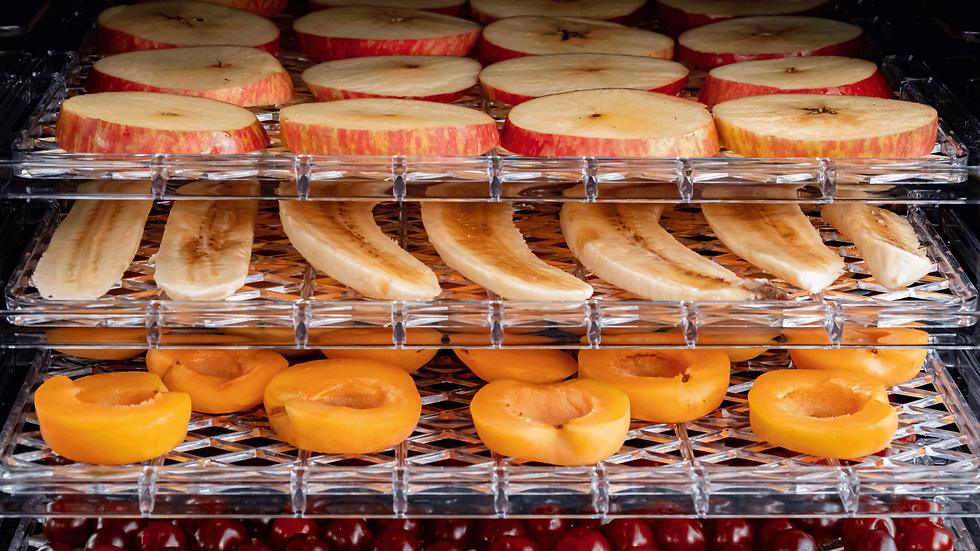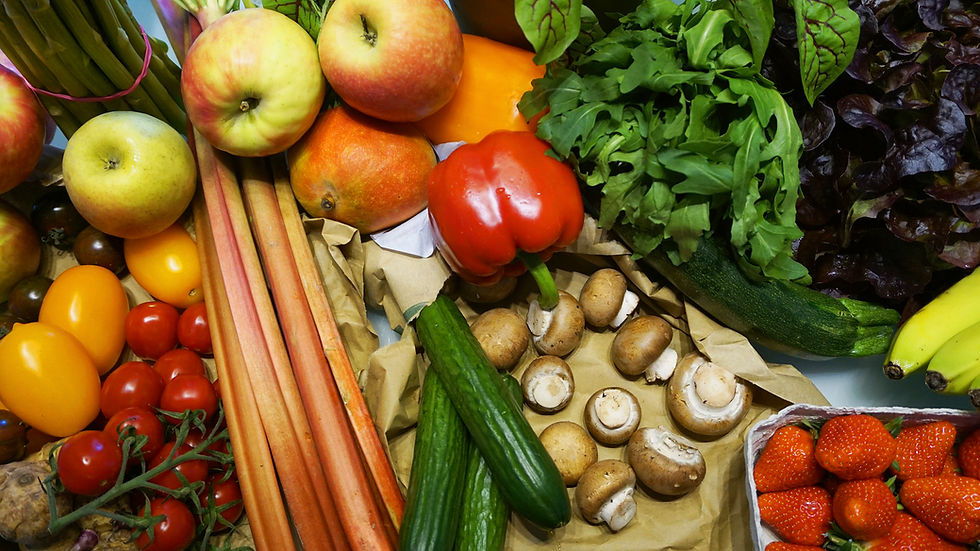Dehydrated Vegetables: Gluten-Free and Allergy-Friendly
- Walid
- Sep 30, 2024
- 3 min read

Dehydrated vegetables are a hidden gem in the world of healthy eating. But what exactly are they? Simply put, dehydrated vegetables are fresh vegetables that have had most of their moisture removed through a drying process. This not only preserves their nutrients but also extends their shelf life, making them a fantastic addition to any pantry.
The process of dehydration typically involves low heat and airflow, effectively removing water while maintaining the vegetable’s flavors and nutrients. Think of it as a way to concentrate the goodness of your favorite veggies! Nutritionally, dehydrated vegetables can be quite powerful; they retain most of their vitamins and minerals, making them a great option for anyone looking to boost their nutrient intake without adding extra bulk to their meals.
Dehydrated Vegetables: Gluten-Free and Allergy-Friendly Guideline:
The Gluten-Free Advantage

Now, let's talk about gluten. For those unfamiliar, gluten is a protein found in wheat, barley, and rye, and it can wreak havoc on those with gluten sensitivities or celiac disease. The good news? Dehydrated vegetables are naturally gluten-free! This makes them a safe and healthy choice for anyone avoiding gluten, whether due to allergies, sensitivities,
or personal preference.
Some popular gluten-free dehydrated vegetable options include carrots, bell peppers, and tomatoes. These can easily be incorporated into soups, stews, or even as snacks, giving you a nutritious boost without any gluten-related concerns.
Allergy-Friendly Features

Speaking of allergies, dehydrated vegetables shine in this area too. Many traditional foods contain common allergens like nuts, dairy, and gluten, making meal planning a challenge for those with food sensitivities. However, dehydrated vegetables offer a simple solution. They are typically free from these common allergens, allowing those with dietary restrictions to enjoy flavorful and nutritious meals without the worry.
When shopping for dehydrated vegetables, it’s essential to read labels carefully. Some brands may add preservatives or flavorings that could contain allergens. Opting for products with minimal ingredients ensures you’re keeping your meals safe and delicious.
Culinary Uses of Dehydrated Vegetables
So, how can you incorporate dehydrated vegetables into your diet? The options are endless! You can use them in a variety of dishes, from stir-fries to casseroles. They can also add a burst of flavor to salads and snacks.
Rehydration is simple; just soak the dehydrated vegetables in warm water for a few minutes before adding them to your recipes. You can also sprinkle them directly into soups or stews, where they’ll soak up the liquid and add texture. Want a quick recipe? Try a vegetable soup using dehydrated carrots, peas, and corn; just rehydrate them, add some broth, and let it simmer for a delicious meal.
Sustainability and Shelf Life
Let’s not forget the environmental benefits of dehydrated vegetables. The dehydration process not only helps reduce food waste by prolonging the life of vegetables but also allows for efficient storage. When you stock up on dehydrated veggies, you’re minimizing your carbon footprint by cutting down on the need for frequent grocery trips.
In terms of storage, dehydrated vegetables can last for years when kept in a cool, dry place. Make sure to seal them in airtight containers to maintain freshness. With proper storage, you’ll always have a healthy option on hand!
The Growing Popularity of Dehydrated Vegetables
Dehydrated vegetables are gaining traction in today’s market, with more consumers recognizing their benefits. As the demand for gluten-free and allergy-friendly options rises, companies are innovating new products and flavors. From gourmet blends to easy-to-use meal kits, the future of dehydrated vegetables looks bright.
Conclusion
In conclusion, dehydrated vegetables are a versatile, gluten-free, and allergy-friendly option that everyone should consider incorporating into their diet. Not only do they offer numerous health benefits, but they also provide an easy way to enjoy your favorite vegetables year-round.
So, the next time you’re in the grocery store, keep an eye out for dehydrated veggies. They might just become your new favorite pantry staple!
FAQs
Are dehydrated vegetables healthy?
Yes, dehydrated vegetables retain most of their nutrients and are a healthy addition to meals.
Can I use dehydrated vegetables in place of fresh ones?
Absolutely! Just remember to rehydrate them before using them in your dishes.
How do I store dehydrated vegetables?
Keep them in a cool, dry place in airtight containers to maintain their freshness.
Are there any preservatives in dehydrated vegetables?
Not usually, but it’s always a good idea to check the ingredient list to ensure they’re pure.
Where can I buy gluten-free dehydrated vegetables?
You can find them at health food stores, online retailers, or even some grocery chains.




Comments